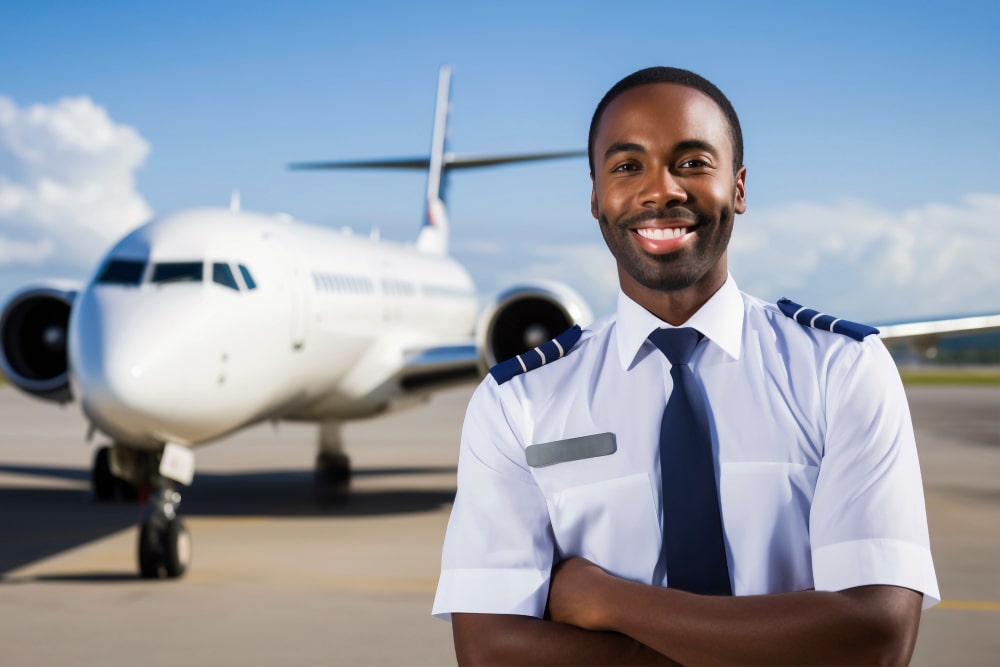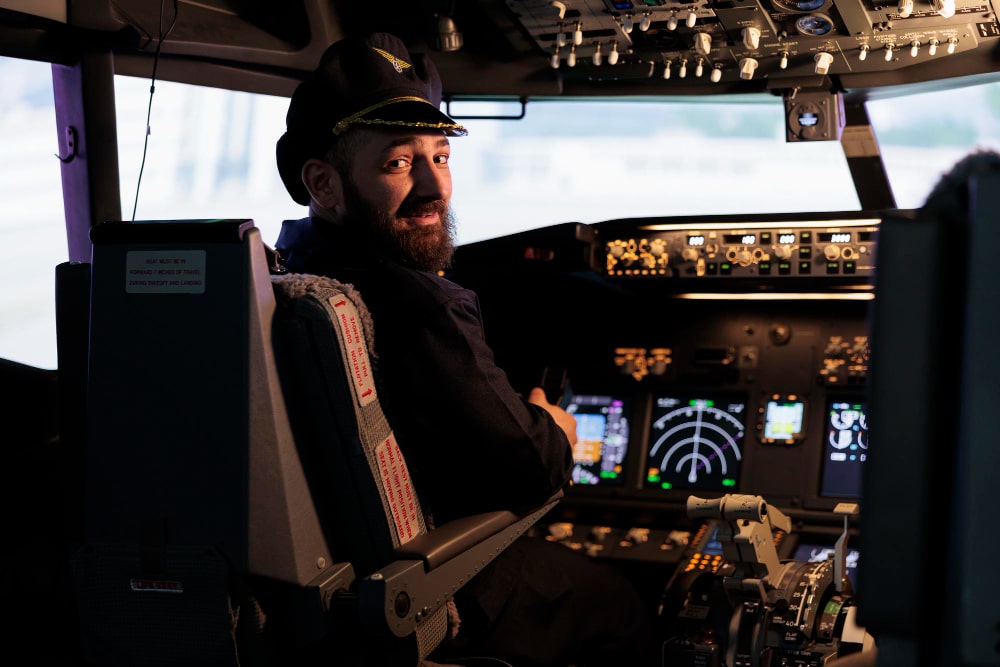Becoming a commercial airline pilot is an exciting and challenging career that requires a specific combination of skills, aptitudes, and resources. From physical and psychological requirements to economic aspects, each element plays a crucial role in the path to a successful career as a pilot. Below, the necessary requirements are detailed to help future pilots understand what is needed to achieve this goal.
Physical requirements to become a commercial airline pilot
The first aspect to consider is the physical requirements. Commercial airline pilots must maintain optimal health to ensure safety and effectiveness in their flights. Medical regulations for commercial pilots are strict, and obtaining a commercial pilot license requires meeting certain medical standards.
Medical evaluation
To obtain a commercial airline pilot license, it is necessary to pass a rigorous medical examination. This exam is usually conducted by a physician authorized by the Federal Aviation Administration (FAA) in the United States, or the equivalent authority in other countries. The medical evaluation covers a series of tests and examinations that ensure the pilot is not only in good physical shape but also has adequate vision and hearing. Key tests include:
- Vision: Commercial pilots must have clear vision, both near and far. This includes the ability to distinguish colors, as color vision is crucial for reading instruments and signals during flight.
- Hearing: The ability to hear clearly is fundamental, as pilots need to hear communications and sounds within the cockpit.
- General Health Conditions: Commercial pilots must be free of medical conditions that could affect their performance, such as serious heart problems, neurological disorders, or chronic illnesses that could jeopardize flight safety.
It is important to note that medical regulations may vary slightly depending on the country and the relevant aviation authority. Therefore, it is essential to consult local regulations for specific information.
Physical condition
In addition to the medical exam, commercial pilots must maintain an adequate physical condition. This involves leading a healthy lifestyle, exercising regularly, and maintaining a balanced diet. The ability to handle physical and mental stress during flight is crucial, and good physical condition contributes to resilience and optimal performance in demanding situations.
Psychological requirements to become a commercial airline pilot
The next aspect to consider is the psychological requirements. Being a commercial airline pilot not only requires technical skills but also significant mental fortitude. The ability to handle stress, make quick decisions, and stay calm under high-pressure situations is essential.
Psychological evaluation
The psychological evaluation is an integral part of the certification process. Future commercial pilots must undergo psychological tests that assess their ability to cope with stress, decision-making, and other relevant psychological aspects. These tests help determine if the candidate possesses the necessary qualities for the job, such as:
- Stress Resilience: Commercial aviation can be stressful, especially during unforeseen situations. Pilots need to manage stress effectively and maintain focus on flight safety.
- Decision-Making Under Pressure: Commercial pilots must make quick and effective decisions during flight. This requires a clear mind and the ability to quickly analyze the situation and choose the best course of action.
- Teamwork Skills: Commercial aviation often involves working as a team, both with the crew and with ground staff. The ability to communicate and collaborate effectively is essential.
Handling Emergency Situations
Commercial pilots must be prepared to handle and manage emergency situations effectively. This includes ongoing training and practice in emergency procedures, as well as the ability to stay calm and lead the crew in critical moments.

Economic requirements to become a commercial airline pilot
Finally, the economic aspect is a key factor to consider. Becoming a commercial airline pilot requires a significant investment in training and certification. Below are the main costs associated with the pilot career:
Training Costs
Training to become a commercial airline pilot includes several stages, each with associated costs. Major expenses include:
- Private Pilot License (PPL): Before obtaining the commercial pilot license, one must first obtain a PPL, which also involves a significant investment in flight hours and training.
- Commercial Pilot License (CPL): Obtaining the CPL requires completing a more advanced course and accumulating a specific number of flight hours. Costs may vary depending on the flight school and the country.
- Additional Flight Hours: Additional flight hours may be required to meet the requirements and gain extra experience.
Other Associated Costs
In addition to training costs, future commercial pilots should consider other associated expenses, such as:
- Study Materials: Includes books, manuals, and other educational resources needed for training.
- Certifications and Exams: Medical and psychological exams, as well as fees for obtaining licenses, are part of the process.
- Uniforms and Equipment: Commercial pilots need an appropriate uniform and, in some cases, additional equipment for their job.
It is important to plan ahead and consider all these investments when embarking on a career as a commercial airline pilot. Some flight schools offer financing plans or scholarships, so it is advisable to explore all available options to manage costs.
Comprehensive Evaluation of the Training Process
In summary, becoming a commercial airline pilot is a process that requires meeting rigorous physical, psychological, and economic requirements. It is essential to be prepared to meet these requirements and understand that the investment in time, effort, and resources is significant.
The medical evaluation and psychological assessment ensure that the pilot can handle the stress and demands of flight efficiently, while economic planning is crucial for addressing the associated training costs. With proper preparation and a commitment to excellence, future commercial pilots can achieve their goals and enjoy a rewarding career in commercial aviation.
Earning your degree at EAS Barcelona opens up a range of opportunities in the aviation sector. With solid theoretical and practical training, graduates are well-prepared to tackle the challenges of the job market successfully.
